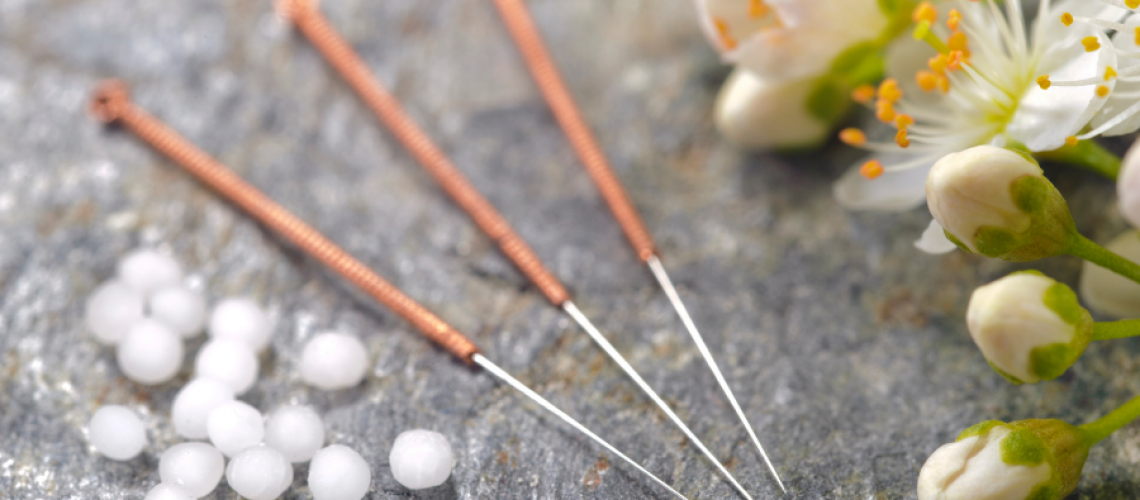Fertility Acupuncture can be a beneficial addition to your treatments while you are building your family. Whether you are just beginning and want to try to prepare your body for pregnancy, or you’ve struggled for many years – acupuncture can be helpful. By increasing blood flow to the pelvis and relaxing your nervous system, fertility acupuncture can improve egg quality, balance hormones, aid in effective implantation and may even help to prevent miscarriage. The benefits of fertility acupuncture are becoming well known but there is a problem. With so many practitioners out there offering acupuncture, how do you know which one to choose?

Written by Guest Blogger: Michelle Kapler, Registered Acupuncturist and Traditional Chinese Medicine Practitioner, Board Certified Reproductive Specialist and the owner and clinical director of The Toronto Reproductive Acupuncture Clinic.
Here are my top tips to help you choose a provider for fertility acupuncture.
Meet and Greet –
a practitioner should offer an opportunity to meet with them, to learn more about how they practice and what the process would look like for your unique and individual case. They should be able to answer questions about time commitment, frequency and cost for the treatment plan. This will also give you an opportunity to ask any questions you might have. During this meeting, I suggest asking the following questions.
- What is your experience in treating fertility? This is an important question to ask, especially if you are working with a fertility clinic. Your practitioner should have ample experience in working with patients who are on fertility medications and having fertility procedures. It is important to make sure you know that your acupuncture treatments aren’t getting in the way of your success with your IVF or other fertility procedure. It is ideal to see a practitioner with at least 2 years experience treating fertility.
- What are your qualifications? There are quite a few regulated health professionals who are technically allowed to perform acupuncture. However, to treat infertility, a practitioner has to be educated in TCM (Traditional Chinese Medicine) diagnosis and treatment. If there is another type of practitioner who is not an Acupuncturist or Chinese Medicine Practitioner, it is likely that they are only qualified to treat muscular and pain conditions (and not internal conditions such as fertility issues)
- Bonus Qualifications -The American Board of Oriental Reproductive Medicine is the certifying board, based in the US, to qualify practitioners as fertility experts. They have knowledge of fertility from both a TCM and a conventional medical perspective. The practitioners on this board are required to prove a minimum level of competency in treating patients who are undergoing medical fertility treatments, by passing a board exam and maintaining a certain level of continuing education. The listings can be found on the ABORM website.
What about success rates?
This is a tricky question because “success” looks different for everyone. What I typically explain to people is that reporting “success rates” when you practice holistic medicine could be considered to be unethical.
People seek fertility treatments for all sorts of reasons, which means that each person will have a different treatment plan. It’s not useful to compare someone who is coming for fertility treatments due to thyroid issues to someone who has endometriosis. The treatment plans look totally different and success for each of these patients can look totally different. So what worked for one person, may not necessarily work for another.
It is, however, useful to ask for some examples of cases they have worked on that are similar to your particular health situation. That will give you a far more accurate idea of whether or not they are the best person to help you.
A final note –
The last thing worth mentioning is that chemistry is an important consideration. When you meet with the potential practitioner, do you get a good feeling? Do you feel comfortable? Fertility can be an intimate topic, often accompanied by intense emotions. You want to make sure that you choose to work with someone you trust and with whom you can feel at ease. You may need to interview a few different practitioners to find the right one. And I believe that it is worth the time and investment.
What is your experience in treating fertility? This is an important question to ask, especially if you are working with a fertility clinic. Your practitioner should have ample experience in working with patients who are on fertility medications and having fertility procedures. It is important to make sure you know that your acupuncture treatments aren’t getting in the way of your success with your IVF or other fertility procedure. It is ideal to see a practitioner with at least 2 years experience treating fertility.
What are your qualifications? There are quite a few regulated health professionals who are technically allowed to perform acupuncture. However, to treat infertility, a practitioner has to be educated in TCM (Traditional Chinese Medicine) diagnosis and treatment. If there is another type of practitioner who is not an Acupuncturist or Chinese Medicine Practitioner, it is likely that they are only qualified to treat muscular and pain conditions (and not internal conditions such as fertility issues)
Bonus Qualifications -The American Board of Oriental Reproductive Medicine is the certifying board, based in the US, to qualify practitioners as fertility experts. They have knowledge of fertility from both a TCM and a conventional medical perspective. The practitioners on this board are required to prove a minimum level of competency in treating patients who are undergoing medical fertility treatments, by passing a board exam and maintaining a certain level of continuing education. The listings can be found on the ABORM website.
What about success rates? This is a tricky question because “success” looks different for everyone. What I typically explain to people is that reporting “success rates” when you practice holistic medicine could be considered to be unethical.
People seek fertility treatments for all sorts of reasons, which means that each person will have a different treatment plan. It’s not useful to compare someone who is coming for fertility treatments due to thyroid issues to someone who has endometriosis. The treatment plans look totally different and success for each of these patients can look totally different. So what worked for one person, may not necessarily work for another.
It is, however, useful to ask for some examples of cases they have worked on that are similar to your particular health situation. That will give you a far more accurate idea of whether or not they are the best person to help you.
Guest Blogger,
Michelle Kapler
Michelle is a Registered Acupuncturist and Traditional Chinese Medicine Practitioner, Board Certified Reproductive Specialist and the owner and clinical director of The Toronto Reproductive Acupuncture Clinic.
She is one of only five practitioners in the province of Ontario who have challenged the exam to become a fellow of the American Board of Oriental Reproductive Medicine, the governing body for fertility specialists in the USA. Her clinical practice is focused exclusively in fertility, pregnancy, gynecology and hormonal health.
P.S. Catch this week’s episode of The Hormone P.U.Z.Z.L.E Podcast – Acupuncture and Your Fertility with Michelle Kapler.
You can also find the episode on this podcast page as well as Spotify, and Stitcher.
Don’t forget to subscribe, follow, and write us a review on Apple Podcast (if you LOVE it).



